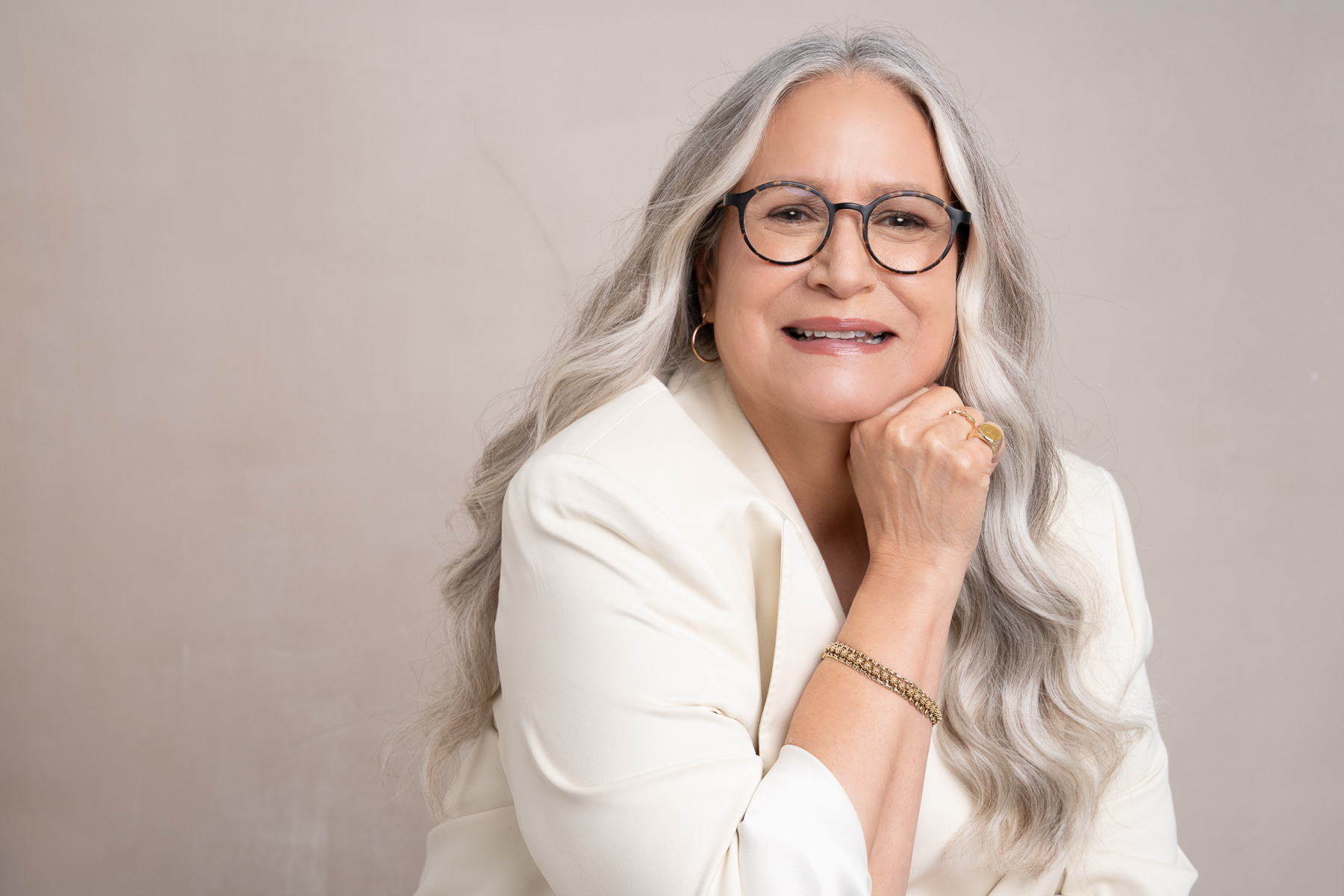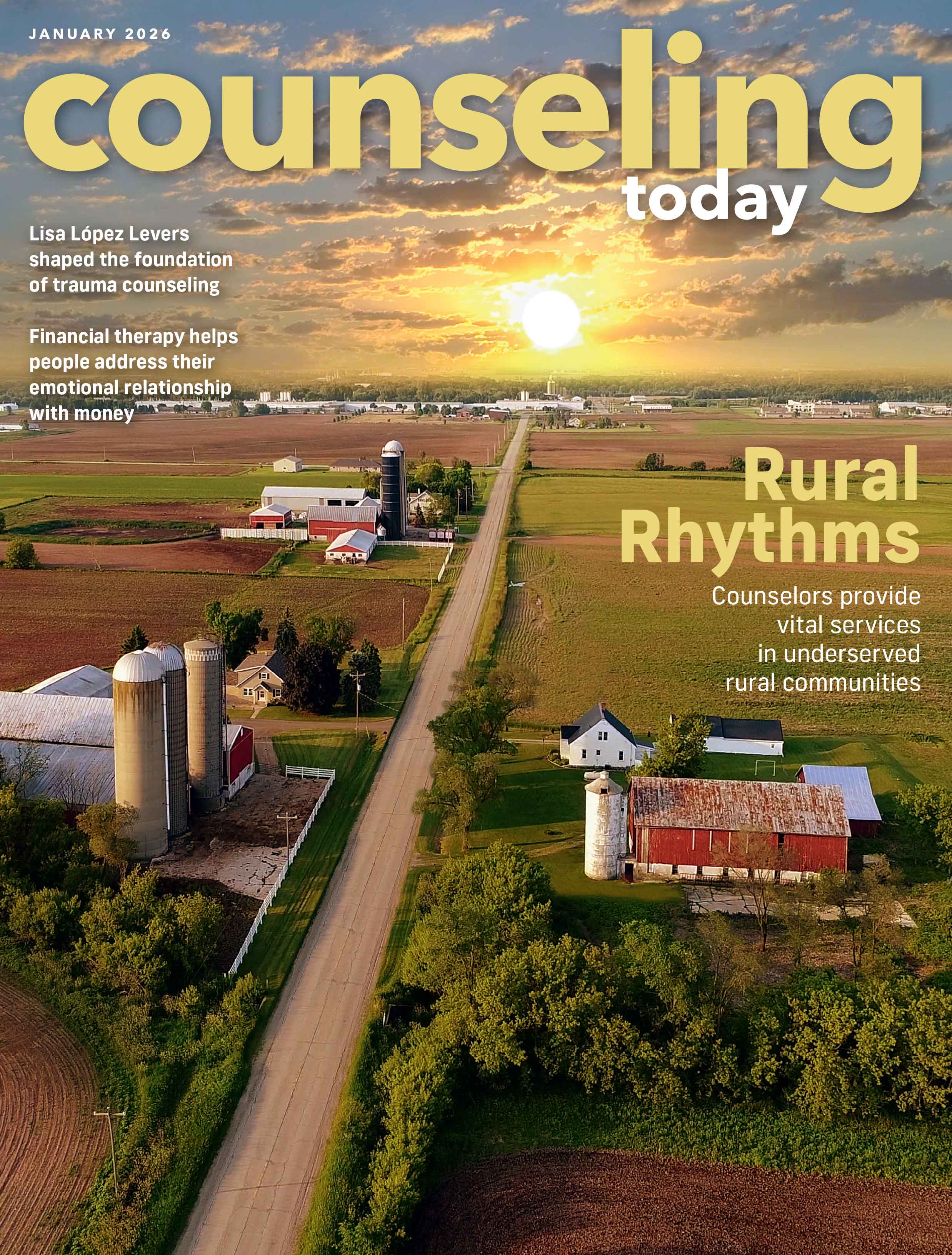Opportunities and Advocacy
By M. Elsa Soto Leggett, PhD, LPC-S, RPT-S, CSC
September 2025

Hola. It is good to be back here with you all. We are in an unsettling time when many voices and forces are coming at us as professional counselors. It can be a struggle to focus on work with clients, students and communities. This environment has given me pause to think about our work and how to move forward. Furthermore, the question that rolls around in my thoughts is how to be present during these uncertain times.
As professional counselors, supervisors and counselor educators, we may be expected to stay attuned, steady and compassionate for others. In addition to showing up, how we show up matters. Our presence is powerful; it can provide an opportunity to sit with others and their pain, to hold space for others in complex times. Being present, however, also means we can ride the wave but not control the tide.
The counseling profession has often played a critical role in supporting or bringing change to systems and individuals — big and small changes. Advocacy is a natural extension of our core values and counseling skills. Yet, as we contemplate when and how to step into advocacy, we must meet our own needs first and ground ourselves to remain fully present. We must recognize our role with a sense of humility because we can help and advocate more effectively when we have prioritized our wellness. We can begin by being aware of our emotional needs, understanding our limits and following steps to stay in the moment. Discomfort during uncertain times is normal. It is OK not to have all the answers.
The Role of Counselors in Uncertain Times
As those around us may grow in anxiety and uncertainty, we can be present and listen purposefully. Being tolerant of our humility and limits, we can embrace being with those we are giving attention to rather than doing for them. Furthermore, in the midst of what feels like chaos, we can continue with our work, connecting with one another and building on our spirituality.
While outside forces are attempting to shape our actions, words and work, the counseling profession is trained and equipped to know what to do in counseling spaces. We can press on with the work that is natural to our core values and profession — promoting human dignity; empowering clients, students and communities; and advancing social justice.
Furthermore, as society continues to threaten human lives and dignity, part of our role is to advocate, which we can do in big and small ways. We are uniquely positioned to foster hope and healing, and hope can be contagious. Beginning advocacy is courageous and can be impactful for clients, students and communities. You do not need a policy background or leadership role to begin.
Following a Road Map
Clarity, commitment and connection can be the road map. First, clarify what drives you to advocate so you can anchor and energize your work. Next, commit to learning more about important, timely issues. Finally, connect with legislative activities through ACA and state and local organizations. Such involvement might include speaking out to correct misconceptions with facts, sharing stories that highlight the impact of your work and connecting with policymakers to share personal stories and ask for change. Big or small, start with your heart. Find ways to get involved.
Service Through Advocacy
My view of advocacy has always looked different from other people’s perspectives. During my childhood, the country was facing civil rights struggles and protests to end a war. Yet, as a child, I did not know about the protests, calls to actions and sit-ins that were common during those times. My parents dealt with advocacy and change differently. They earned degrees when institutions tried to keep them out. They were often told they would not be smart enough to be an engineer or a registered nurse. They put their minds to the task and worked to overcome oppression. And they raised up others with them — from one person at a time to small groups of people. Together, they worked to bring change in small ways. This is how I learned service and advocacy — through small connections and conversations. Offering to serve when there was a need. Moving things forward one step at a time.
My struggles with understanding the range of possibilities for advocacy brought me to one of my initiatives as ACA president. I hope, with the help of many, to provide a webinar series that will help others understand how to advocate. The webinars will help participants understand how to put advocacy into action, from insight to impact. Please look for these and participate in them as they roll out. You’ll be able to select individual webinars or participate in all of them. Completing the full set will include a certificate of completion.
Advocacy can bring change, and that work can be big or small. Your efforts matter. And if you are struggling to believe, you can borrow my belief until you have your own.


